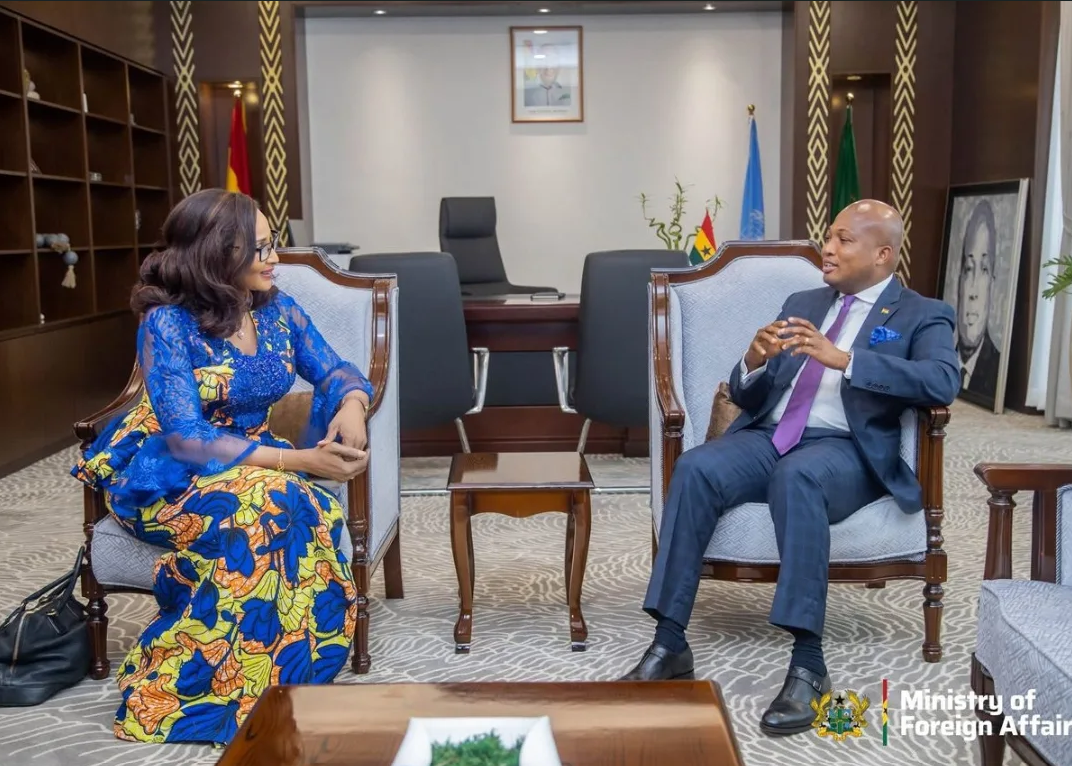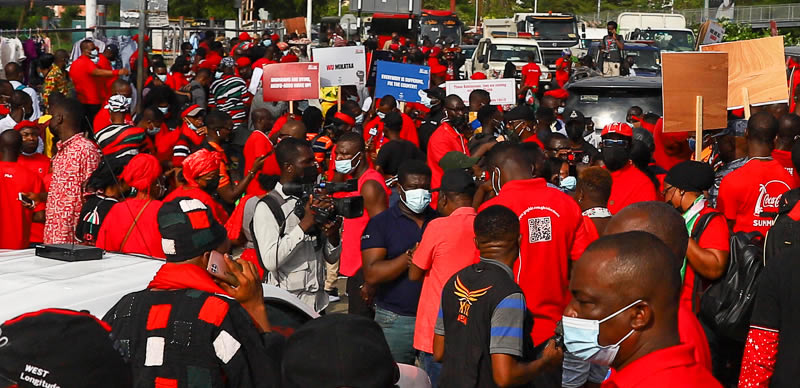
Tensions between Nigeria and Ghana appeared to ease this week following a joint statement by both governments in response to anti-Nigerian protests that had sparked concern across the region.
- Tensions between Nigeria and Ghana eased following a joint statement addressing recent anti-Nigerian protests in Ghana.
- Protests in parts of Ghana were fueled by viral videos alleging criminal activities by Nigerian nationals, triggering calls for deportations.
- Concerns over adherence to Ghana’s trade laws, particularly relating to activities dominated by foreign nationals, remain a source of tension.
The protests, which emerged in parts of Ghana and were fueled by viral social media videos alleging criminal behavior by Nigerian nationals, led to growing calls from some Ghanaian groups for mass deportations.
In a move aimed at de-escalation, Nigeria’s Minister of State for Foreign Affairs, Bianca Odumegwu-Ojukwu, traveled to Accra as a special envoy dispatched by President Bola Tinubu.
Speaking during a joint press briefing with Ghana’s Foreign Affairs Minister, Samuel Ablakwa, Odumegwu-Ojukwu emphasized that the Nigerian government was taking the concerns seriously but also urged the public not to panic.
“Contrary to online reports, there was no visible unrest upon our arrival,” she said, adding that her mission was to ensure the welfare of Nigerians in Ghana while engaging in constructive dialogue with local authorities.
Ghana’s Foreign Minister, Samuel Ablakwa, also used the occasion to reaffirm his government’s commitment to the safety of all residents, regardless of nationality.
“The Ghanaian government will ensure that everyone in the country, citizens and non-citizens, is protected,” he stated, while cautioning all residents to steer clear of criminal activities and actions capable of inciting division.
Tensions rooted in trade disputes

On Saturday, a large group of Ghanaians gathered at Accra’s Obra Spot to stage a protest demanding the immediate expulsion of Nigerians from the country, accusing them of being behind a rise in crime and social vices.
The demonstrators carried placards bearing charged messages such as “Nigerians Must Go,” “End Kidnapping,” “End Prostitution,” “End Armed Robbery,” and “End Ritual Murders.”
Others questioned the state’s protection of Ghanaian citizens, with one sign reading, “Who protects the rights and freedom of Ghanaians?”
The protest, while not unprecedented, reignited public scrutiny over the role of Nigerian nationals, particularly in sectors like petty trading, which Ghanaian law reserves for its citizens.
In a separate report, Ghanaian journalist Obibini Kojo Bansah acknowledged these growing tensions, attributing part of the discontent to the perception that Nigerians are violating the Ghana Investment Promotion Centre (GIPC) Act 865 of 2013.
The law bars non-citizens from engaging in small-scale trading and street hawking—activities that many local traders argue are increasingly dominated by foreigners.
While enforcement in Ghana has been inconsistent, the regulation mirrors a recent directive by the Tanzanian government that has drawn criticism across the continent, with Kenya openly threatening retaliatory measures.
Bansah pointed out that the Ghana Union of Traders Association (GUTA) has for years, petitioned the government to enforce these regulations. The association has also threatened nationwide demonstrations if foreign encroachment into local trade persists without government intervention.
Though recent bilateral engagement and a joint government statement have eased immediate tensions, there are fears that without comprehensive policy reforms and sustained dialogue, mistrust and resentment may continue to simmer between the two countries.












